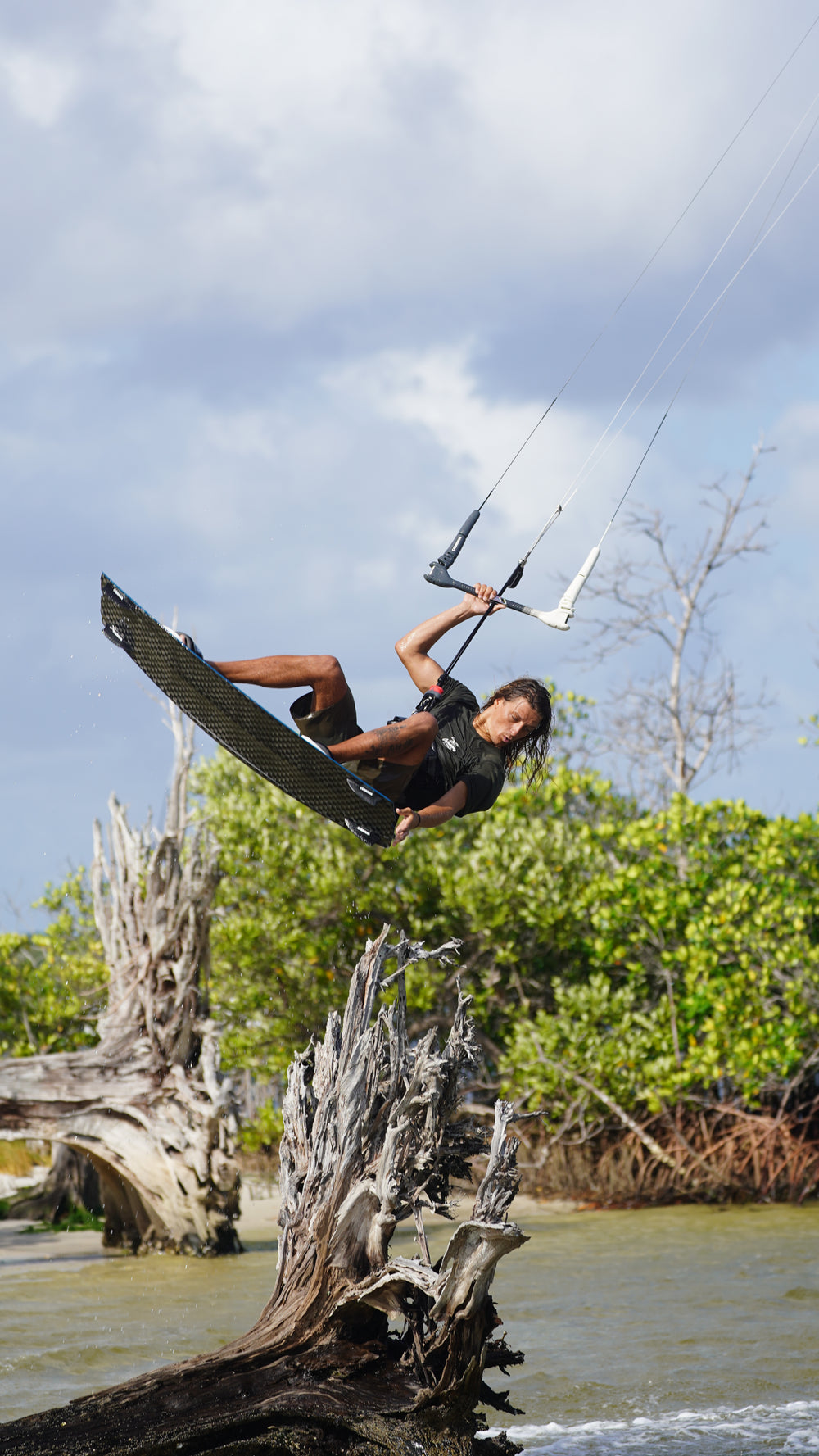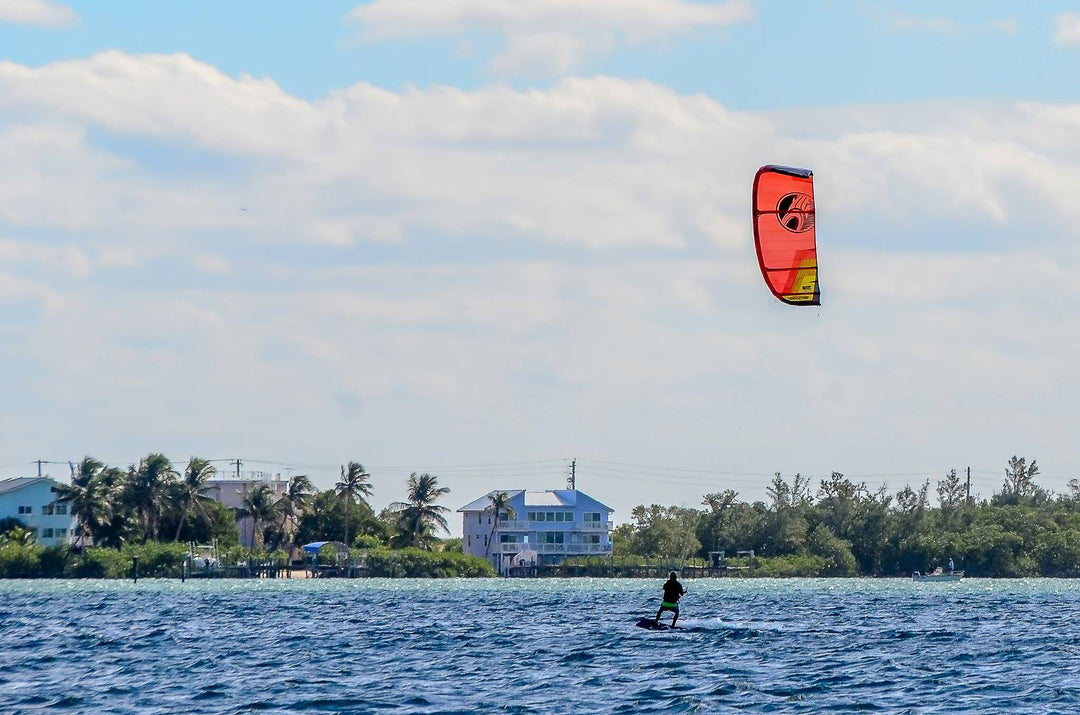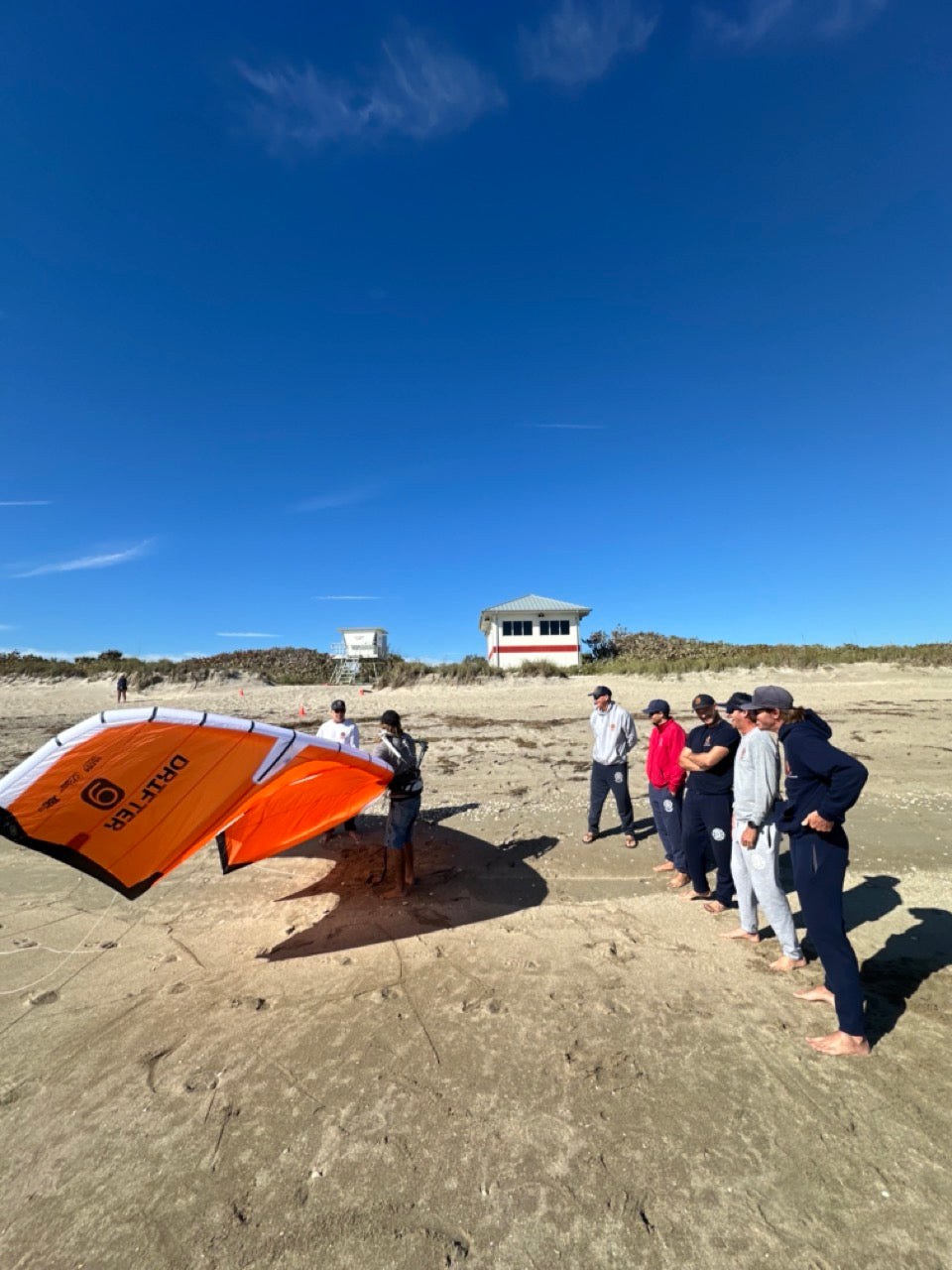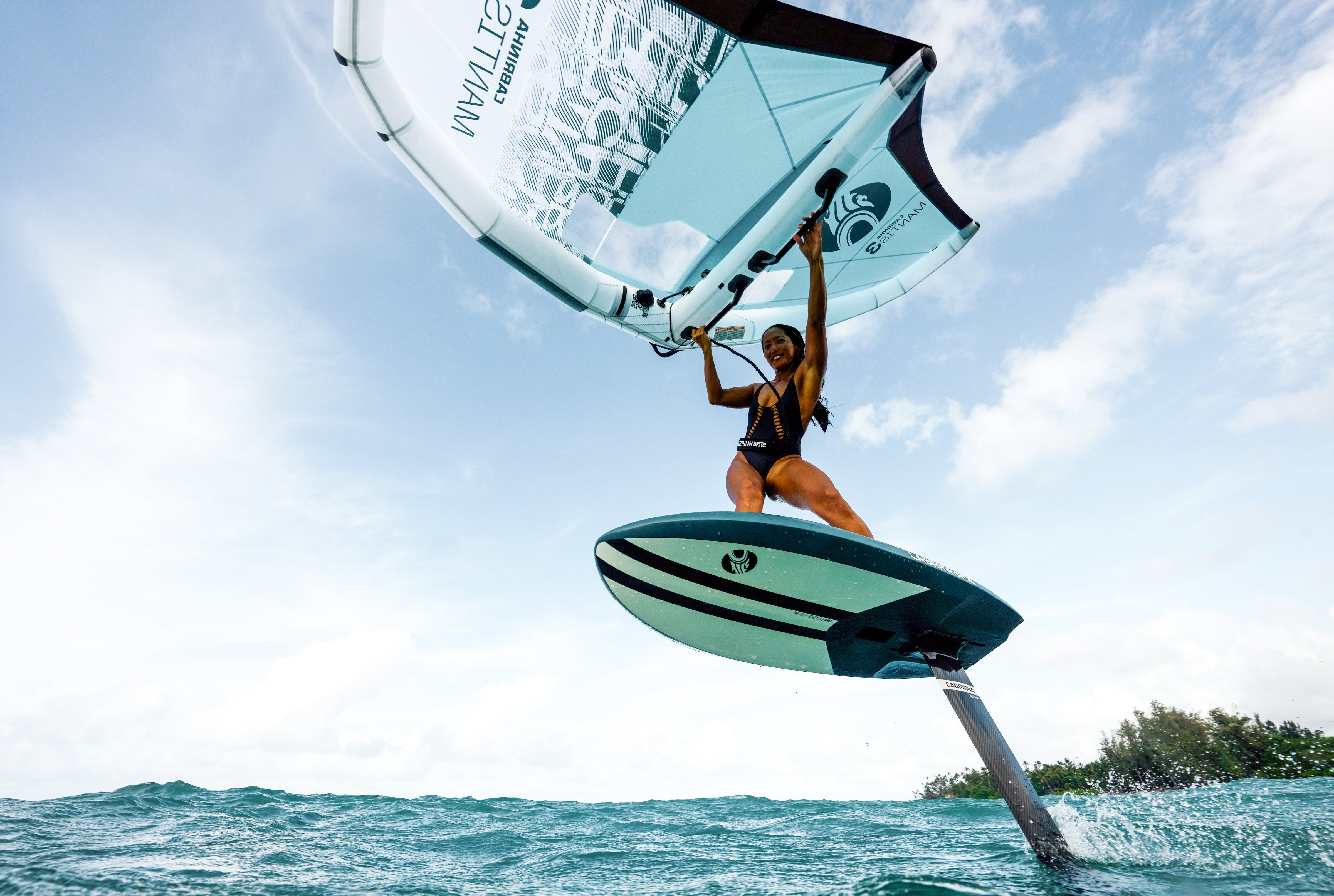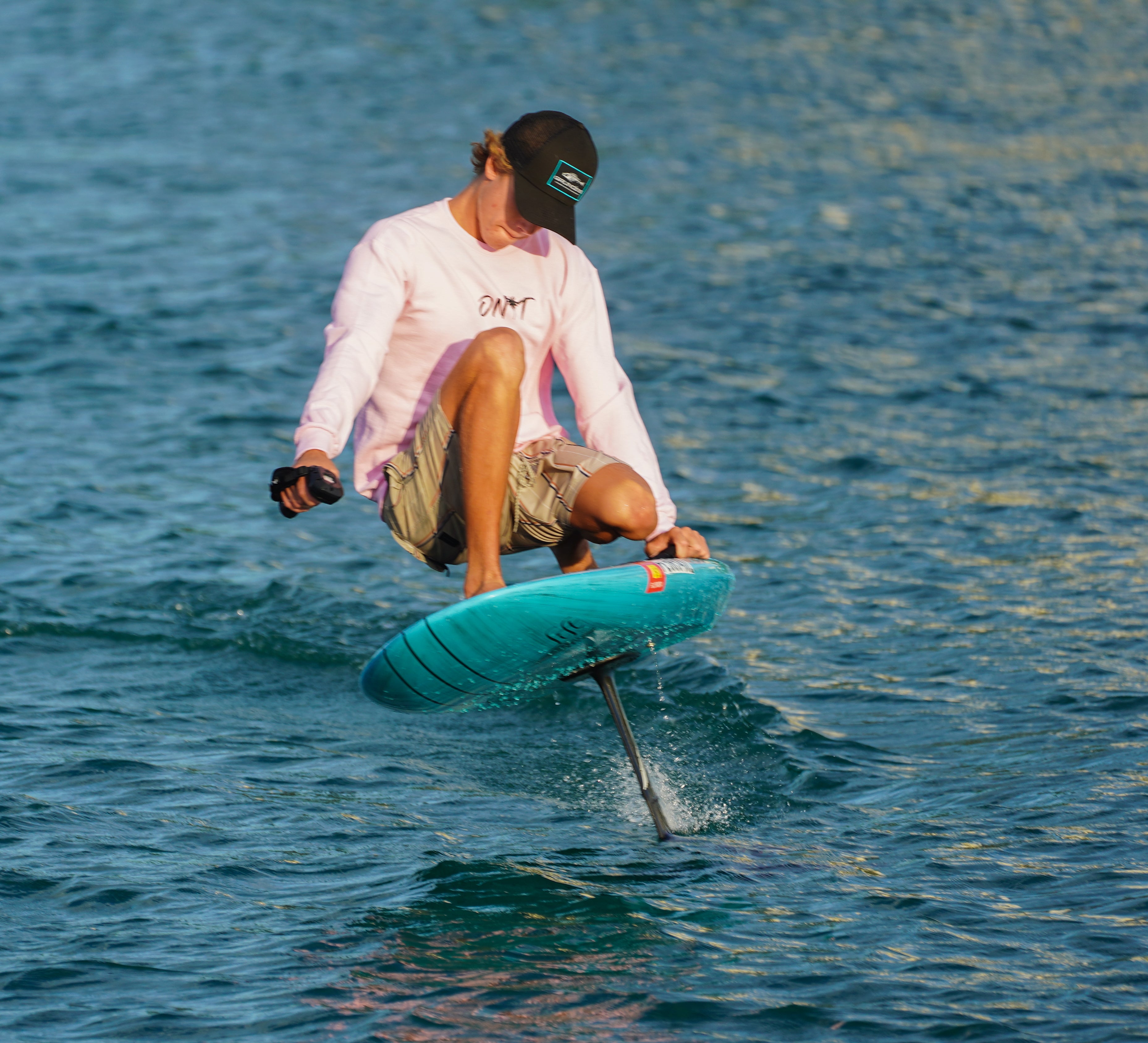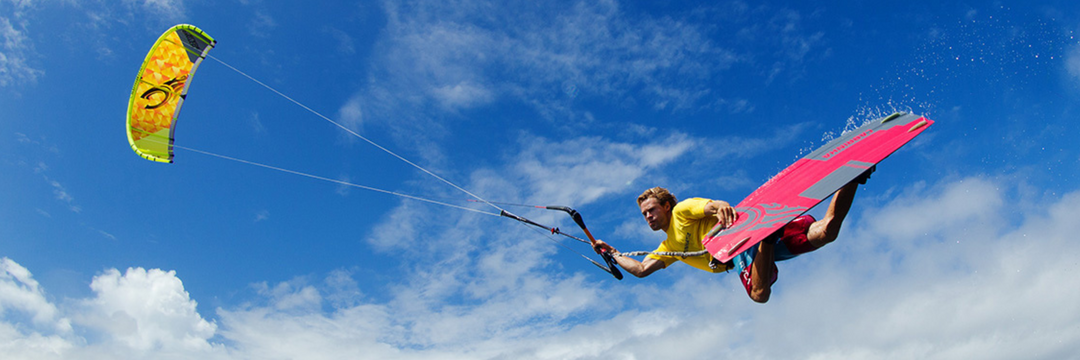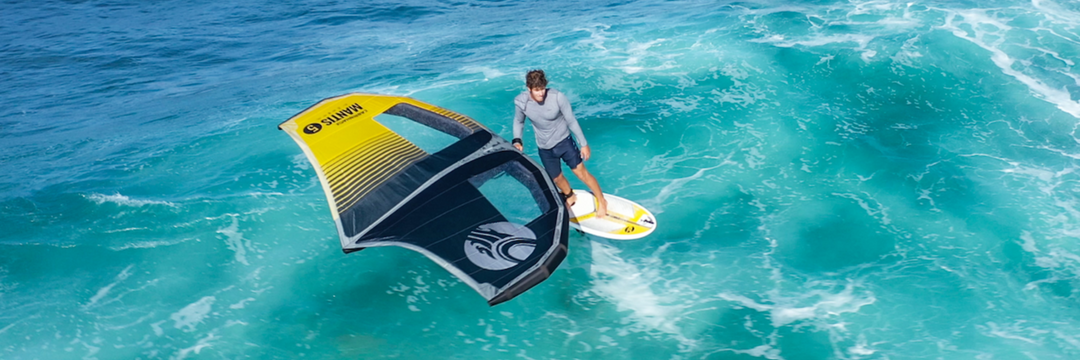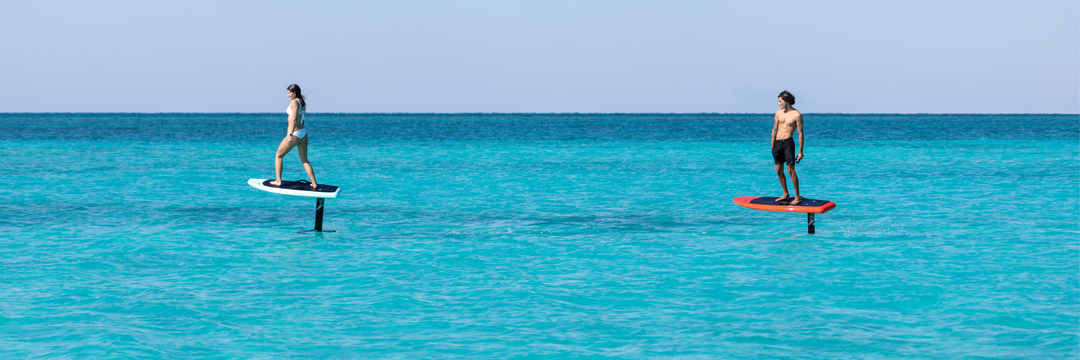Kiteboarding Airline Guide
The Ultimate Travel Handbook for Kiteboarders Flying With Gear in 2025–2026
Traveling with kite gear is a skill of its own. Airlines all claim to “accept sporting equipment,” but every carrier has different rules for board bags, length limits, weight caps, sports-item fees, oversize charges, and region-specific exceptions that only show up when you’re already at the counter.
As kiteboarders, we want one thing: get the full quiver to the destination safely, cheaply, and without check-in drama.
This guide pulls together late-2025 airline policies and lays out how they apply as we move into 2026. Whether you’re flying to the Caribbean, Baja, Hood River, Brazil, Europe, or Indo—this is the master reference.
Why This Guide Matters
You’ve seen it before:
Your buddy books a cheap flight, rolls up to the airport with a twin-tip and two kites, and suddenly gets slapped with a $150+ “sports equipment” fee—each way.
Another rider books the same route on a better airline and checks the exact same bag for normal checked-bag price.
Airline policies can mean hundreds of dollars saved (or lost), especially flying with big bags or long surfboards. It’s worth getting this right.
What Kiteboarders Actually Care About When Flying
When choosing a flight, the details that matter most are:
1. Does my kiteboard bag count as a normal checked bag?
Some airlines treat it like a standard suitcase (ideal), others force a “sports fee.”
2. Are oversize fees waived for boards?
Most U.S. carriers now waive oversize fees for surf/kite bags under 115 in / 292 cm.
3. Weight limits
Common limits you must stay under:
-
50 lb (23 kg) = standard checked bag
-
70 lb (32 kg) = maximum before it becomes cargo
-
Anything over 32 kg is refused
4. Length limits
Europe and Middle Eastern airlines often cap bags between 190 cm and 300 cm.
5. Boarding multiple kites, bars, wetsuits, etc.
Stuff the bag smartly, but some airlines (e.g., BA) prohibit clothing in sports bags.
6. Foils
Most carriers accept foil boards and foil masts if padded well.
7. eFoils
Batteries are the challenge:
-
100 Wh max in checked luggage
-
Up to 160 Wh in carry-on only, with approval
-
Full-size eFoil batteries are almost always prohibited
Some brands now sell travel-legal packs.
General Packing Tips (Regardless of Airline)
Experienced kiters consistently agree on these:
-
Use a golf travel bag when possible—staff rarely ask questions.
-
Bring a digital luggage scale to avoid surprise overweight fees.
-
Wrap foil masts and wings in clothes or 5mm foam.
-
Put wetsuits, harnesses, bars, and pump along the rails to absorb impacts.
-
Print or screenshot the airline’s official sports equipment page—it helps at check-in when staff are unsure.
-
If flying with a surfboard, get a hard-bottom coffin bag with nose protection.
Airline-by-Airline Breakdown (Late-2025 → 2026)
Below you’ll find the best distilled summary for kiteboarders, organized by region.
North American Airlines
American Airlines (AA) — One of the Best for Kite Trips
How they treat kite gear:
Kiteboards are grouped under “water sports equipment” and count as standard checked bags.
Oversize fees are waived if under 115 in / 292 cm.
Limits:
-
50 lb / 23 kg standard
-
Up to 70 lb / 32 kg with overweight fee
-
Max length: 115 in
Why it’s good:
-
Extremely kite-friendly
-
No oversize fees for board bags
-
Reliable across most destinations
Watch out:
Some South America & European routes have extra restrictions—check before booking.
Delta — Also Excellent for Kiteboard Bags
Treatment:
Kiteboards count as standard checked bags if under 115 in.
Limits:
-
50 lb standard
-
70 lb overweight
-
115 in max
Why it’s good:
Oversize fees usually waived. Very predictable.
Watch out:
Extra bag fees stack quickly on multi-stop itineraries.
United — Quietly One of the Best in 2025–2026
Treatment:
United removed its surfboard surcharge on many routes. Kiteboard bags often fly as regular checked bags if under 115 in.
Limits:
-
50 lb
-
115 in max
Why it’s good:
United is now a top option for West Coast, Caribbean, Hawaii, and South America kite trips.
Alaska Airlines — West Coast Kiters Love This One
Treatment:
Treats surf/kiteboard bags as standard checked bags with no oversize fee.
Ideal for:
-
Hawaii
-
Mexico
-
West Coast + Baja missions
Limits:
-
50 lb
-
115 in max
-
Some smaller aircraft may restrict long bags
Southwest — No Longer as Cheap as It Used to Be
What changed:
Southwest ended its “two bags fly free” policy in 2025.
Kiteboard bags still accepted but now bag fees apply.
Limits:
-
50 lb
-
Oversize allowed but overweight fees apply
Best for:
Short domestic missions with compact bags.
JetBlue — Friendly on Size, Not on Price
Treatment:
Kiteboard bags are a fixed-fee sports item, usually $100 each way.
Pros:
-
Very generous size allowance
-
Good for long foil masts or surfboards
Cons:
-
Expensive for single board bags
Spirit & Frontier — Budget Carriers, Heavy Fees
Both allow kiteboard bags but expect:
-
Oversize fee
-
Sports equipment fee
-
Overweight fee
-
Booking-fee variations
Total can easily exceed $150–$200 each way.
Recommendation:
Avoid unless you’re traveling ultralight with a single kite + twin-tip.
Canada & Latin America
Air Canada
Treatment:
Kiteboard bags = sports equipment with a handling fee (~$100–$120 each way).
Limits:
-
23 kg standard
-
Length restrictions vary
Note:
Great service, pricey fees.
WestJet
Similar to Air Canada but slightly more variable by route.
Expect:
-
$50–$120 sports equipment fees
-
Strict per-piece rules
LATAM
Treatment:
Kiteboards often included in sports allowance, depending on fare.
Expect:
-
23 kg weight limit
-
300 cm length cap
-
US$30–$100 sports fees on some routes
Good for:
Brazil, Chile, Peru trips.
Europe
British Airways (BA) — Great if You Have a Short Board
Treatment:
Kiteboards can be checked as part of your regular baggage if under 190 cm.
Pros:
-
No sports fee if under size limit
-
One of the most straightforward airlines
Cons:
-
190 cm limit is strict
-
They may ask that your board bag contain no clothes
KLM — Very Clear, Very Kite-Friendly
Treatment:
Kitesurfing equipment has its own category.
Rules:
-
You can use your board bag instead of a checked bag
-
107 cm requires pre-booking as a sports item
-
Max length: 300 cm
Great for:
Trips to Brazil, Cape Verde, South Africa, and Europe.
Air France
Partners with KLM; policies are nearly identical.
Ideal for:
-
French Caribbean
-
Mauritius
-
Europe → Africa routes
Lufthansa
Treatment:
Must pre-register sports gear. Fees vary widely.
Restrictions:
-
Max 315 cm
-
Max 32 kg
-
No sports gear included on Light fares
Summary:
Good airline, complicated baggage rules.
Ryanair
Treatment:
Kiteboard bags fall under “Large Sports Equipment.”
Fee:
€55–€65 each way
Limits:
-
20 kg maximum
-
Overweight = expensive
Great for short European hops with a compact twin-tip.
Middle East Hubs (For Indo, Africa, Sri Lanka, Maldives Trips)
Emirates — One of the Best in the World
Treatment:
Kitesurfing equipment is accepted as part of your standard checked allowance.
Limits:
-
Up to 300 cm
-
Standard weight rules apply
Why it’s top-tier:
Huge baggage allowances, no weird rules, excellent long-haul service.
Qatar Airways
Treatment:
Sports gear counted as part of your free checked allowance.
Limits:
-
Boards under 3 m
-
23–32 kg depending on fare
Best for:
Indian Ocean destinations.
Turkish Airlines — Amazing for Indo (Promo Routes)
Through 2025 (and likely extending into 2026), Turkish allows one surf/kiteboard bag for free on routes to/from:
-
Sri Lanka
-
Bali
-
Maldives
-
Indonesia
-
Australia
Limits:
-
Up to 292 cm
-
Up to 32 kg
This is a huge perk and worth building your trip around if flying to Indo.
Best Airlines for Kiteboarders in 2026 (Ranked)
Top Tier (Easiest, Most Consistent)
-
Emirates
-
Qatar Airways
-
KLM / Air France
-
American Airlines
-
Delta
-
United
-
Alaska Airlines
-
Turkish Airlines (especially the 2025–26 promo routes)
Middle Tier (Decent but Pricey or Complicated)
-
British Airways
-
Lufthansa
-
LATAM
-
WestJet
-
Air Canada
-
Southwest (after removing free bags)
Bottom Tier (Avoid for Most Kite Trips)
-
Spirit
-
Frontier
-
Ryanair (unless you’re carrying a tiny board)
Foils, Surfboards & eFoils: What You Must Know
Foil Boards + Foil Masts
Airlines accept them as long as:
-
They are well padded
-
Fuselage and mast edges are protected
-
Total weight stays under 23–32 kg
eFoils
This is battery-driven and therefore tricky.
Battery rules:
-
0 Wh–100 Wh: allowed in checked or carry-on
-
101 Wh–160 Wh: carry-on only, with airline approval, max 2 batteries
-
>160 Wh: not allowed on passenger aircraft
Most eFoil packs are 900–2,000 Wh → NOT allowed.
Brands now making travel-compatible batteries must be checked before booking.
Booking Checklist for Kiteboarders
Before You Book
-
Compare airline baggage rules first
-
Measure your board bag in linear inches
-
Look at length limits (especially for European carriers)
Week Before Trip
-
Weigh your board bag
-
Pre-register sports gear (Lufthansa, Turkish, etc.)
-
Screenshot airline policy page
At the Airport
-
Stay calm if staff is unsure—show the policy
-
Be ready to shift weight between bags
-
Use a small duffel as your “scale dump” bag if you need to reduce weight fast
Final Thoughts
Flying with kite gear is totally manageable once you know the rules. The right airline can save you hundreds of dollars and a ton of stress—and the wrong one can ruin a trip before you even clear TSA.
For 2026, the winning pattern is clear:
Choose airlines that treat kiteboard bags as standard checked bags with waived oversize fees.
Think: Emirates, Qatar, KLM, American, Delta, United, Alaska.
Bookmark this guide, and you’ll never get surprised at the check-in counter again.


